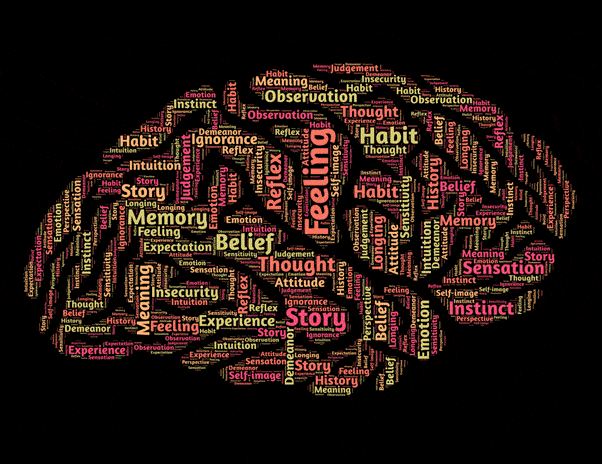In December 2022, there were 11 million job opportunities in the United States, which was more than the 10.25 million market forecasts and the highest level in five months.
People agree that having a solid work ethic is a trait they value in an employee. But if you don’t believe in yourself and your abilities, how will you put in the extra effort to get the job done?
Growth mindset versus fixed mindset is one of the newest and hottest conversations in the business world. Learning about perspective and resolving a fixed mindset is essential for success, but do you know the differences?
Read on to learn about the differences between a growth mindset and versus fixed mindset and the implications they have on personal and professional success.
What Is a Growth Mindset?
A growth mindset believes you can develop abilities, talents, and intellect through dedication, hard work, and effort. It encourages people to think big, challenge themselves, try something new, and take risks.
Also, it focuses on the learning process rather than the result, giving more opportunities for improvement and learning within goals. It emphasizes the importance of effort. Every mistake is an opportunity to learn and grow.
With a growth mindset, one enjoys failure and the challenge of trying something new, as it allows one to gain experiences and invaluable life lessons. It is a powerful tool to shape experiences and appreciates progress toward our goals.
What Is a Fixed Mindset?
A fixed mindset is a way of thinking that believes personal qualities, such as intelligence or character, are permanent, so they cannot change. It suggests that an individual cannot improve or increase talent or ability.
When challenges or mistakes are encountered, the individual tends to give up. Instead of taking constructive criticism and trying their best, it will lead them to a lack of effort.
It is intensely concerned with how other people will perceive them and leads to a negative outlook on life. Those with this mindset may not take risks or try something new, as they may need to focus more on how well they can perform.
Impact of These Two Mindsets on Education:
Mindset is an essential factor in the educational setting. A growth mindset focuses on the idea that people can develop their intelligence and skills. Those with this outlook become resilient to setbacks and strive to reach their goals.
A fixed mindset believes that intelligence is static and predetermined. People with such an outlook often give up after facing obstacles or criticism. That is why many educators promote a growth mindset in the learning environment to help students achieve their goals and foster a positive learning experience.
Learners should understand that developing and honing their skills is a continuous process. It can also help them manage failure better by making it an opportunity for learning and self-improvement. Ultimately, a growth mindset can boost academic performance and help students experience success.
Consider VILT training if you are willing to learn and adopt new learnings from afar.
Similarities Between the Two Mindsets:
Both are focused on how individuals handle challenges and how they develop over time. They involve how attitudes, self-beliefs, and behavior can shape a person’s destiny. Although they may focus on different things, they can determine a person’s success or failure.
A growth mindset is an idea that people can improve and learn new skills and work in progress. However, a fixed mindset looks at how people remain the same no matter what.
Both mindsets involve the idea of effort being a means to reach specific goals. It parallels that anyone can achieve whatever goal they set out for by investing time and effort.
Advantages of Growth Mindset Over Fixed Mindset:
A growth mindset is a powerful tool that allows individuals to push through challenges, reach their own goals, and be successful. It helps increase self-confidence and self-awareness. Knowing that there are strengths and weaknesses, this mindset prepares individuals for positive change and development.
With it, one can set and reach ambitious goals. It helps individuals to stay focused, maintain a healthy attitude, and bring in a sense of accomplishment.
While fixed mindset is an attitude that suggests personal successes, failures, talents, and intelligence are traits that we cannot change. People with this mindset are more likely to stick to routine tasks and are much more risk-averse. It can work in some cases as they will be careful not to make mistakes or break any rules.
It is easier for individuals to stay motivated as they have clear expectations. Having an established set of beliefs and values can provide a sense of security and identity that many find comforting. It can be particularly true for people who have experienced trauma or difficult times.
The Downside of Growth Mindset and Fixed Mindset:
A fixed mindset is one in which people believe their skills, qualities, and characteristics are unchangeable. It can cause people to give up, as they consider their current rates will not enable them to meet their goals.
A growth mindset encourages people to believe they can improve their skills and qualities. Unfortunately, a growth mindset can have its disadvantages as well. People with this mindset may compare themselves to others as they can become focused on achieving perfection.
Additionally, they may become invested in one skill set and need more time to find their strengths in other areas of life. It can lead to feelings of dissatisfaction with the progress they have made.
Apply the Best Mindset Toward Life:
Now, you have an idea about growth mindset versus fixed mindset roles. Growth mindsets bring the capacity to learn, grow and set small goals toward long-term success, while fixed mindsets can limit our ability to reach our full potential.
You can work towards a growth mindset and reach your goals with effort and dedication. Get started now, and you will be surprised by what you can do.
Check out our other blog posts if you found the information in this post beneficial.







